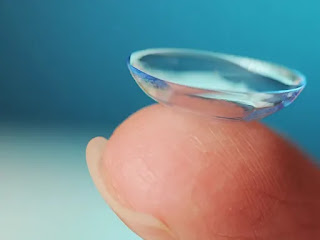My contacts are poisonous? Not so fast.

Recent media coverage has brought attention to a report claiming that 18 soft contact lenses from three major companies in the industry were found to contain PFAS or toxic "forever chemicals". Per- and polyfluoroalkyl substances (PFAS) are a class of synthetic chemicals used in a variety of consumer products for their ability to resist heat, stains, and water. They are referred to as "forever chemicals" because they break down very slowly and can accumulate in people, animals, and the environment over time. This has prompted concern about potential long-term health effects - studies have shown that high levels of exposure to some PFAS may be linked to increased risk of cancer and other adverse health issues. In contact lenses, PFAS are used to soften the material and enhance oxygen permeability. So, you might be wondering, are my soft contact lenses safe to be wearing? Currently, there is no scientific litera...



